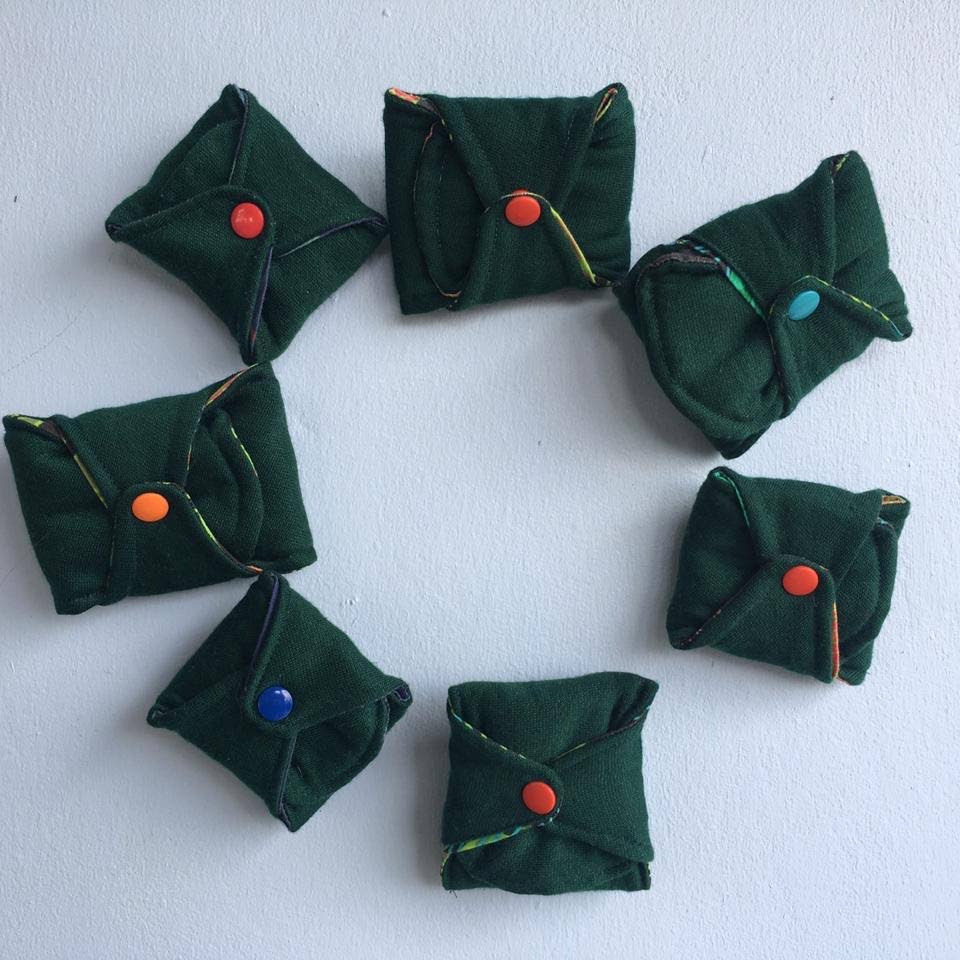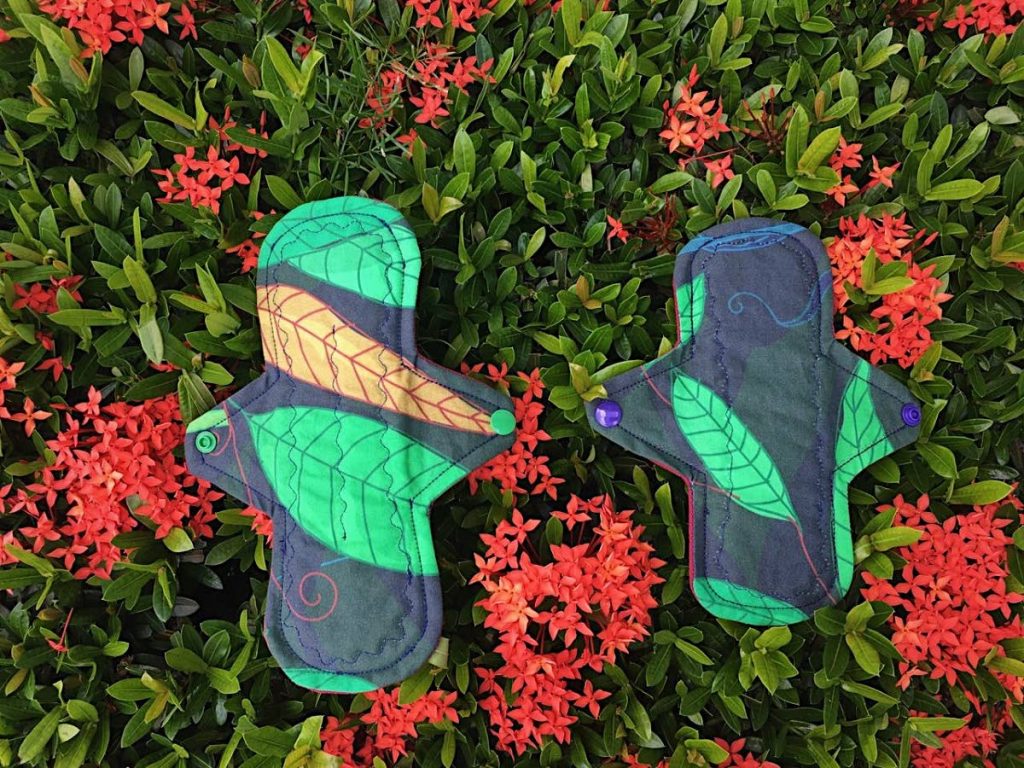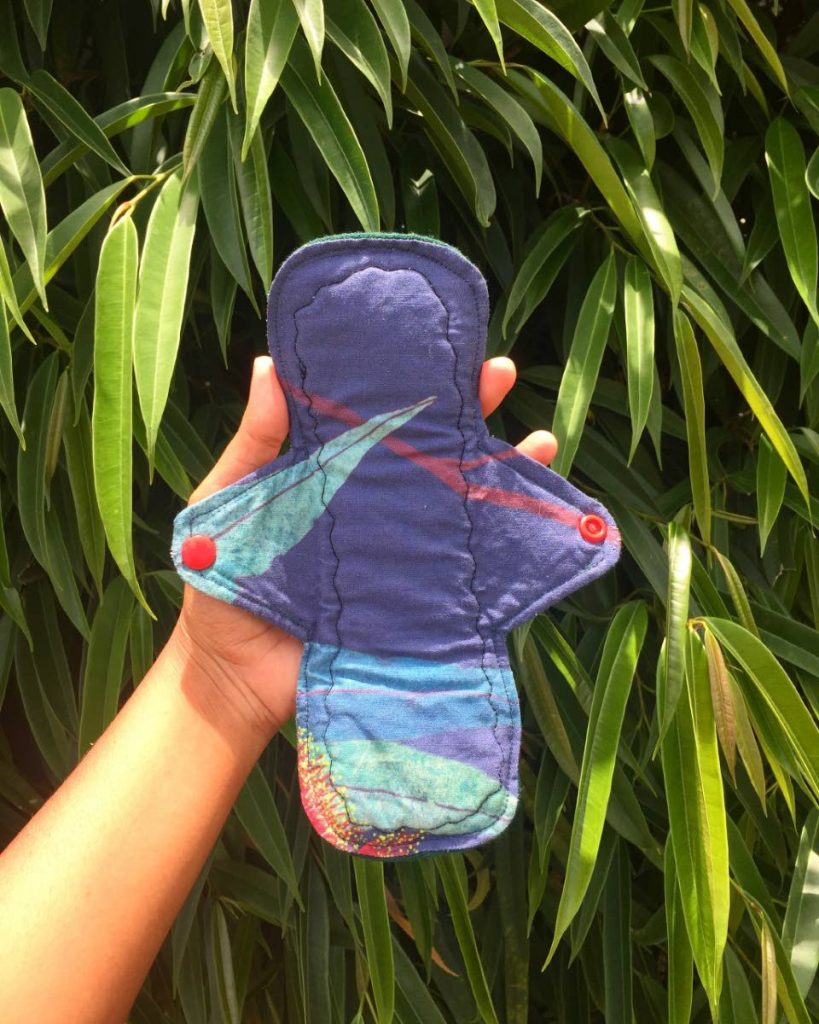Lily Pads: making periods go green

Lily Pads TT are a new, reusable locally-made period product. They're designed and produced by Amy Li Baksh, a 26-year-old artist from San Juan, who wanted to explore environmentally sustainable ways to manage her menstruation. About a year ago, Baksh started to research items such as the menstrual cup and reusable pads.
When she figured she could make them herself, she did a couple of tests, and decided to sell them as there was no one in TT making reusable pads.
"I was talking to other women who tried it, and part of the problem is that women don't know that it is an option. That showed me there was a whole need for the product.
"Eventually I had to try it myself. That's why I started Lily Pads. It is also an education push to get people accustomed to this idea of reusable pads," she told Newsday in an interview on Wednesday.
The pads are made out of cotton, bamboo, flannel and fleece. The fleece base provides a level of water resistance and the bamboo makes it more absorbent. The regular pads can last roughly six hours and the overnight can last eight hours.

To wash the pads, she suggests soaking them in cold water first, then tossing them in the washing machine on a delicate cycle. However, do not use fabric softener or drying sheets as it damages the ability of the bamboo to absorb properly.
Having a beautiful design on her pads was important to Baksh. The fabric she uses has a floral pattern. She bought that fabric, but going forward she will be designing her own, as she wanted to play around with the aesthetics.
"I am an artist, so creating my own prints would be interesting for me to do. Also, it's a psychological thing to have something cute for us to wear. It's like wearing a cute pair of underwear, though no one is going to see it. You feel cute."
Her pads cost $100 for the regular and $120 for the overnight. She says it is an investment, as her pads can last three to five years if taken care of properly.
"If you calculate it over the period of years, it would come up to $6 per month. It's way cheaper than disposable pads," she said.
Disposable pads and tampons vary in price. Depending on the brand, quality and number of pads in a pack, the cost of periods per month can range from a ten-pack of pads with wings costing $7.95 to $33.99 for a pack of 24 overnight pads. Depending on how heavy a flow a person has and how long their period lasts, tampons can cost between $20 and $65.

Menstrual cups, which are made of latex or silicone and are inserted in the vagina to collect the menstrual flow, are found locally in certain stores. Starlite Pharmacy sells the Harmony Cup for $145. Junckollage sells the Harmony Cup for $150. Live Green sells a range of brands such as the Diva Cup for $425, Genial Day for $345 and Lunette for $420.
The issue of period poverty was raised locally earlier this year when cricketer Dwayne Bravo partnered with Indian social entrepreneur Arunachalam Muruganantham, also known as "Padman," inventor of a low-cost sanitary pad-making machine, to produce affordable pads for the TT market. Baksh hopes her reusable pads will be a meaningful contribution to combating period poverty, but acknowledges the biggest limitation to impoverished women using reusable pads is that they must have access to a steady flow of clean water.
She does, however, hope to have workshops around the country, particularly in rural areas where women could benefit from learning a skill such as making a reusable pad.
Not only are they easier on the pocket, but they're better for the environment, as a lot of plastic from the linings of disposable pads, as well as the wrappers, are thrown away every year.
From the wrappers the pads come in, to the applicators in tampons, most feminine hygiene products use a lot of plastics. In the UK, feminine hygiene products are the fifth most common item found on Europe’s beaches, according to a story by Anna Turns in the UK Guardian. Baksh believes by using reusable menstrual products, she is reducing her contribution to pollution.
Baksh started selling Lily Pads only a month ago, but has sold out her first batch of 30. Some people chose to buy three to six pads at once.

She is making them on a small scale, as it's just her behind the operations. She recently left her job in advertising, and designing and producing the pads was her way of getting back in touch with her artistic side as well as contributing to the production of something environmentally sustainable with a positive message.
"I remember when I was in school and I was playing with my friends and a girl came up to us and said she could not be included because she was not 'clean.' That mentality holds people back for living their lives, especially for a normal and life-creating process. Periods are a part of our everyday life. They don't change who you are or the worth of your body," she said.
Generationally, she hopes things are changing when it comes to the stigma of menstruation. She recalled an elder member of her family who had to leave school the moment she got her period. However, her mother's approach helped shape her into the period-positive person she is today.
"My mom's generation was different. She thought it was important to teach me about my period in a positive way. A lot of girls get stressed and have anxiety about their periods still and they don't need that."
She uses gender-neutral terms when it comes to the promotion of her product and discussions on menstruation, as non-binary people and trans people also menstruate. She wants to keep her message gender-neutral and inclusive.
Her Instagram page @LilyPadsTT is not just a promotional page for the product, but Baksh's platform to introduce much-needed dialogue on period positivity, gender neutrality in menstruation and removing the stigma and shame from periods.

Comments
"Lily Pads: making periods go green"